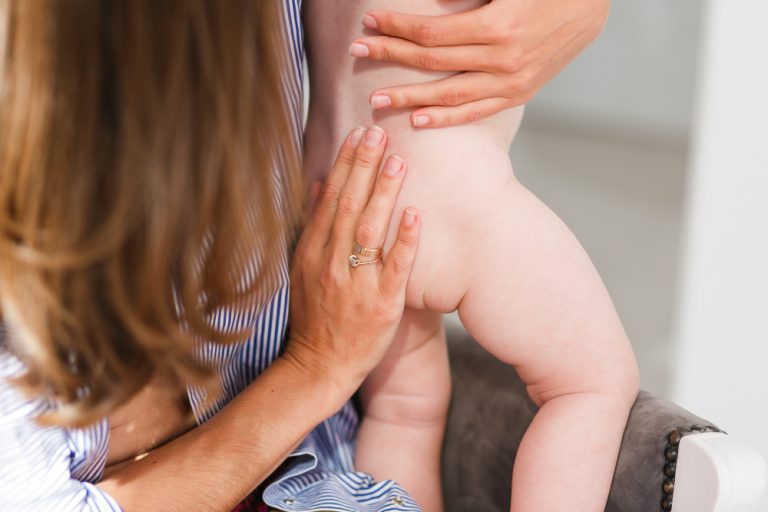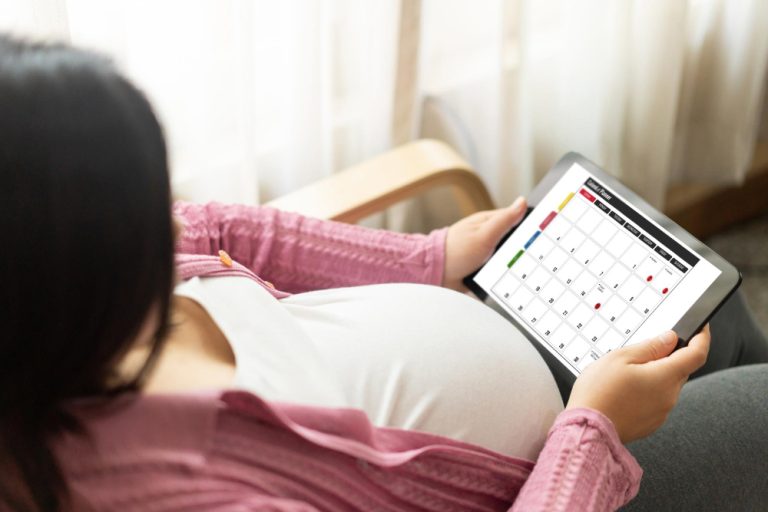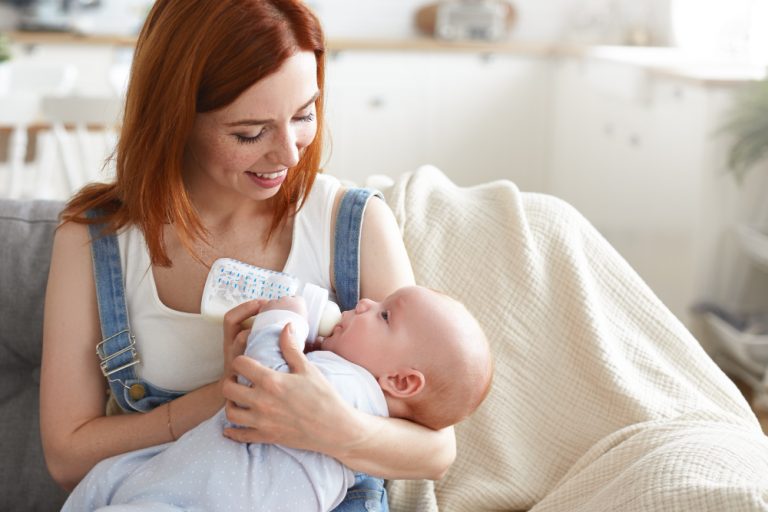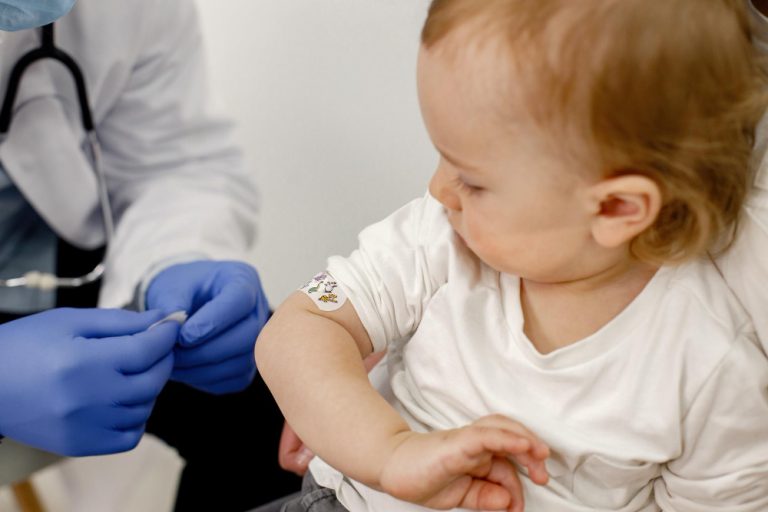When to Start Brushing Baby Teeth? Tips For Brushing Baby
Ever wondered when to start brushing baby teeth? Picture this: a sweet smile with tiny teeth peeking through, a precious milestone in your little one’s journey. As a parent, nurturing these first teeth is a vital step towards establishing good oral hygiene habits for a lifetime.
Starting early with proper dental care not only protects those budding teeth but also sets the stage for healthy gums and overall oral health.
Delaying or neglecting brushing can lead to issues like tooth decay, affecting your child’s well-being in the long run. So, when is the right time to begin this crucial routine?
In this insightful listicle, we delve into the essential techniques for brushing baby teeth at different stages of development. From choosing the right toothbrush to picking the perfect toothpaste, we cover it all.
Let’s explore when to start brushing baby teeth and how you can give your child the best start for a lifetime of healthy smiles.
Tips for Brushing Baby & Toddler Teeth
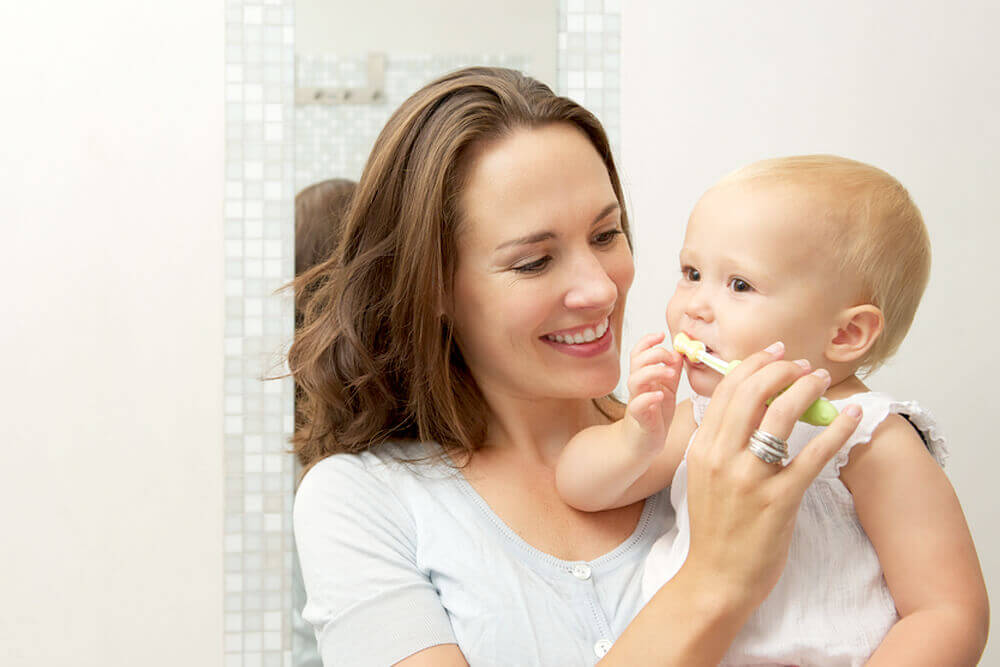
When it comes to the oral health of your little one, starting early is crucial. Here are some tips for brushing baby and toddler teeth:
Do You Brush Newborns’ Gums?
- Even before the first tooth erupts, it’s essential to clean your baby’s gums.
- Use a clean, damp washcloth or a soft silicone finger brush to gently wipe their gums after feedings.
- This helps remove bacteria and establish good oral hygiene habits from the beginning.
How to Brush Your Baby’s Gums
- Once the first tooth appears, usually around 6 months, you can start using an infant toothbrush.
- Choose a brush with soft bristles and a small head.
- Gently brush your baby’s gums and teeth using a circular motion.
- Remember, it’s essential to be gentle to avoid discomfort.
When Do You Start Brushing Baby Teeth?
- As soon as that first tooth emerges, it’s time to start brushing.
- At this stage, use an infant toothbrush with a small smear of fluoride toothpaste.
- Brush your baby’s teeth twice a day, once in the morning and once before bed.
How to Brush Baby Teeth
- When brushing your baby’s teeth, hold the brush at a 45-degree angle to the gum line and brush in small circular motions.
- Be thorough but gentle, paying attention to all surfaces of the teeth, including the front, back, and chewing surfaces.
How to Brush Babies’ Teeth When They Refuse
- If your baby resists brushing, try making it a fun and engaging activity.
- Sing a song or use a toothbrush with a character they love.
- You can also let them hold the toothbrush and mimic your brushing movements.
How to Make Brushing Teeth Fun For Toddlers
- For toddlers, making brushing teeth enjoyable can help establish a positive dental routine.
- Let them choose their toothbrush and toothpaste flavors.
- Sing a tooth brushing song or use a fun timer to make brushing time more exciting and engaging.
What Kind of Toothbrush Should My Toddler Use to Brush Their Teeth With?
- For toddlers, choose a toothbrush with a child-sized brush head and soft bristles.
- Look for colorful and appealing designs that will attract your child’s attention and make brushing more enjoyable.
Remember, maintaining oral hygiene is crucial for your child’s overall health. Instilling good brushing habits from an early age sets them on the path to a lifetime of healthy smiles.
When To Start Brushing Baby Teeth
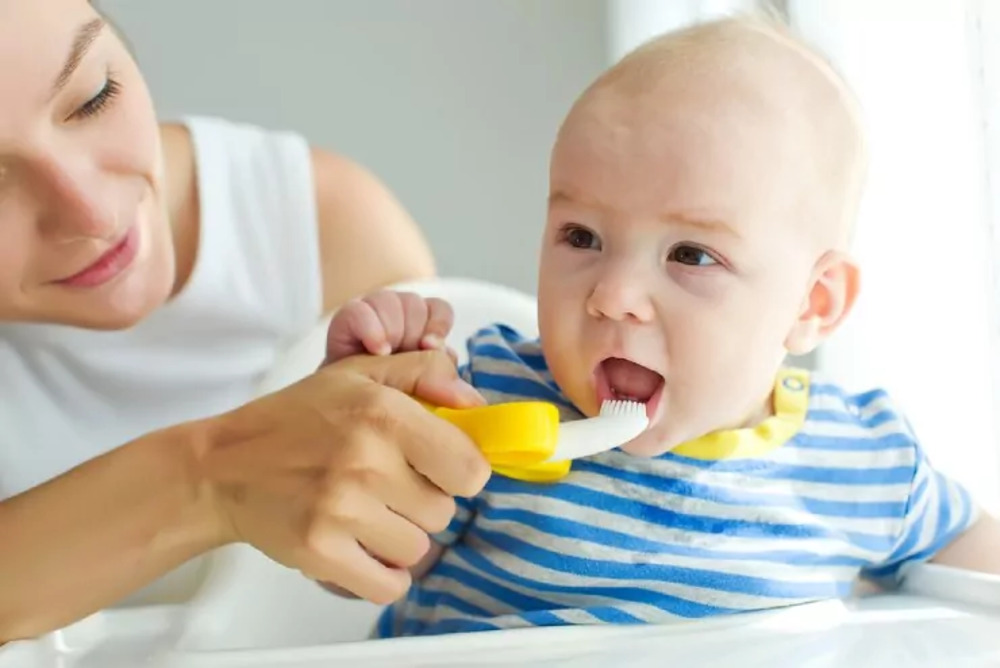
Babies may not have a full set of teeth yet, but oral hygiene should start from the very beginning. Establishing good brushing habits early on sets the foundation for a lifetime of dental health.
Here’s a timeline to guide you on when to start brushing baby teeth:
0-3 Months: Gum Care
- Even before their first tooth emerges, it’s essential to clean your baby’s mouth.
- Gently wipe their gums with a clean, damp washcloth or a finger brush after feeding.
3-6 Months: Continue Gum Care and Begin Tooth Brushing
- Once the first tooth appears, switch to using an infant toothbrush with soft bristles.
- Brush the tooth and gently clean the gums twice a day.
6-9 Months: Continue Gum Care and Begin Tooth Brushing
- As more teeth start to emerge, maintain the same routine of brushing and cleaning the gums.
- Introduce a small smear of fluoride toothpaste on the toothbrush.
9-12 Months: Brush Those New Teeth
- By this age, your baby may have multiple teeth.
- Brush their teeth twice a day, using a small amount of fluoride toothpaste.
- Ensure you cover all tooth surfaces and the gum line.
12-18 Months: Keep Brushing and Seeing Your Dentist
- Regular brushing continues into toddlerhood.
- Encourage your little one to try brushing themselves while supervising their technique.
- Arrange their first dental visit by their first birthday.
3-6 Years: Encourage Self-Care with Assistance
- Support your child’s independent brushing habits and assist in reaching those hard-to-reach areas.
- Encourage them to spit out the toothpaste, but avoid rinsing with water.
Start your baby’s oral health journey early by incorporating these toothbrushing tips at each stage. Remember to choose a soft-bristled toothbrush appropriate for their age and consult a pediatric dentist for further guidance.
With proper oral hygiene, you’re setting them on the path to a bright smile and a lifetime of good dental health.
Pediatric Dentistry
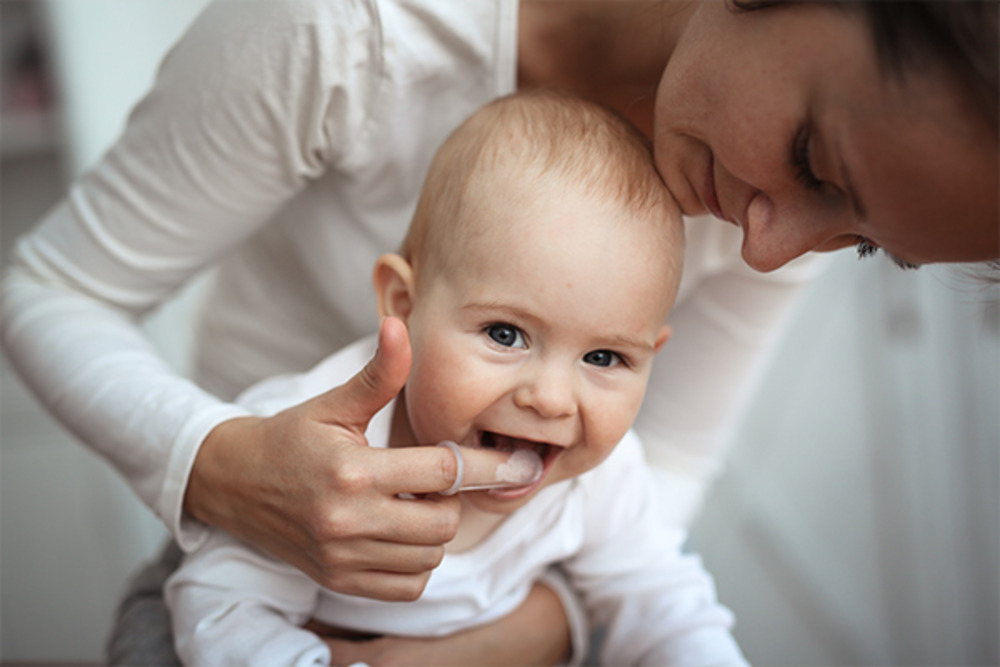
When it comes to your child’s dental health, starting early is essential. Baby teeth, also known as primary teeth, play a crucial role in speech development, chewing, and guiding the eruption of permanent teeth. Taking care of your child’s teeth from the very beginning sets the foundation for a lifetime of good oral hygiene habits.
Pediatric dentistry focuses on the dental care of infants, children, and adolescents. Dentists specializing in this field have the knowledge and expertise to address the unique dental needs and concerns of young patients.
They provide comprehensive oral healthcare, including preventive treatments, early intervention, and guidance for parents on proper brushing techniques and dietary habits.
By ensuring regular visits to a pediatric dentist, you can monitor your child’s oral health, identify any potential issues, and receive guidance on everything from teething to brushing techniques. Setting your child on the path to good dental health starts with pediatric dentistry.
The Final Note: When To Start Brushing Baby Teeth
In conclusion, establishing good oral care habits from the very beginning is crucial for your baby’s dental health. Knowing when to start brushing baby teeth and following the recommended techniques at each stage of development can set the foundation for a lifetime of healthy smiles.
Starting with gentle gum care even before the first tooth emerges, progressing to using an infant toothbrush with soft bristles, and later introducing fluoride toothpaste are essential steps in this journey.
Encouraging your child’s independence in brushing while providing necessary assistance and regular dental check-ups further contributes to their oral well-being.
By following these guidelines and consulting a pediatric dentist for additional support, you can ensure that your child grows up with a healthy and beautiful smile.


